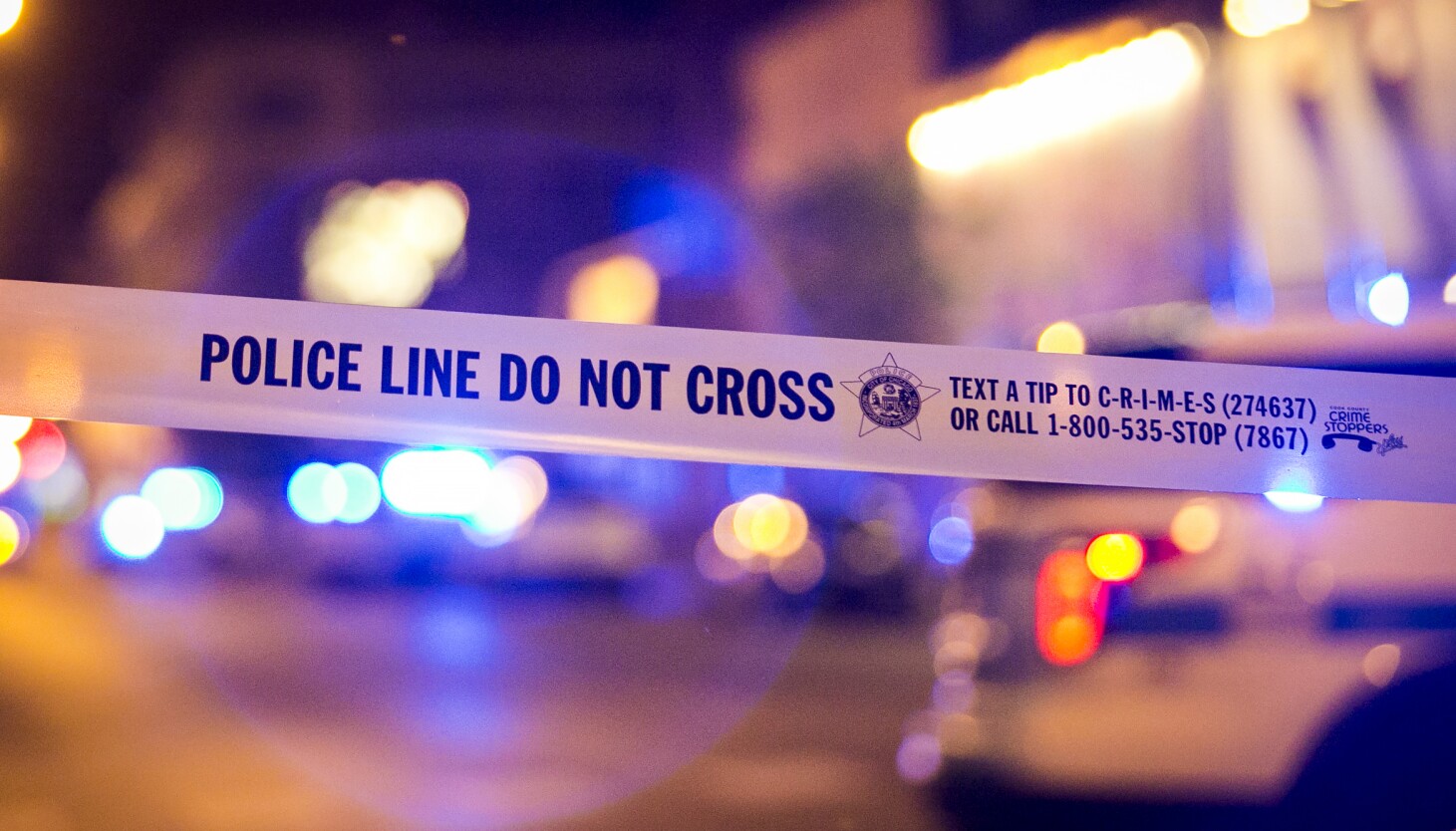Chicago saw its most violent holiday weekend of the summer as President Donald Trump’s threats to send the National Guard into the city have put local crime rates in the national spotlight.
At least nine people were killed and 52 others wounded, in shootings and other violence citywide over the long Labor Day weekend. The holiday tally began at 5 p.m. Friday and ran through 5 a.m. Tuesday.
Trump has called the city a “killing field” and said he planned to send National Guard troops as soon as this week. City and state leaders have staunchly opposed the plan, citing overall dropping crime rates in recent years and saying the presence of federal troops could do more harm than good.
This weekend’s gun violence was a significant jump from last year’s late summer holiday weekend, when eight people were killed and 22 wounded. Memorial Day weekend and the Fourth of July weekend were also less violent this year. Four people were killed and 22 were shot over Memorial Day weekend, and eight were killed and 40 were shot over Independence Day weekend, which was also marked by a high-profile mass shooting in River North.
Sixteen of the wounded this weekend were involved in three attacks: a mass shooting in Bronzeville that left seven wounded; another mass shooting in Oakland that hospitalized five; and a drive-by shooting in Humboldt Park that hurt four.
Weekend homicidesEfrain Sanchez, 48, died about an hour after he was shot multiple times around 11 a.m. Monday morning in Little Village. Around 7:45 p.m. Sunday night, 18-year-old Morgan Alaniz was also shot in Little Village and taken to Stroger Hospital where he died.Roughly an hour earlier, a 26-year-old woman was shot during an argument outside a Riverdale home. A 46-year-old man was killed in a shooting that wounded two other men around 1:40 a.m. Sunday on the Lower West Side. On Saturday night, 43-year-old Nichelle Blunt was shot when she was approached by five assailants in Riverdale.Jack Haynes, 29, was killed in a shooting that wounded another man Saturday morning in Humboldt Park. Around 2:50 a.m. Saturday, Cedric Hicks, 33, was shot to death during an argument at an Englewood home. Around 2 a.m. Saturday, 63-year-old Nabil Abzal was pulled from the water at DuSable Harbor. His drowning death was ruled a homicide. Just before midnight Friday, a 25-year-old woman was fatally shot in a South Shore apartment. Weekend mass shooting details
Around 11:10 p.m. Saturday, a group of people were standing in the 3500 block of South State Street when a vehicle drove by and someone inside opened fire, Chicago police said. Seven people between the ages of 28 and 32 were wounded and taken to various hospitals in good condition.
Hours later, in the second mass shooting of the weekend, multiple shooters opened fire on a group in the 2700 block of West Haddon Avenue, police said. All four victims, between the ages of 26 and 39, were listed in good condition.
The third mass shooting happened early Monday morning in the 3600 block of South Cottage Grove Avenue. The five victims, ranging in age from 17 to 33, were listed in good to critical condition at different hospitals.
Violence trends
Around 26% of those wounded or killed in this weekend’s violence were involved in mass shootings, as were more than 25% of the Fourth of July weekend’s victims.
But overall, violent crime has trended down in the city. Chicago has seen a 32% decline in homicides, a nearly 33% decline in robberies and a 36% decline in shootings this year compared with 2024, according to Chicago police data. The holiday weekend, though, was more on par with a peak of violence seen in 2021 and 2022. In 2021, 11 were killed and 55 were wounded in shootings over the Labor Day weekend, and the following year 11 people were killed and 45 were wounded.
Last year was the first since 2019 with fewer than 600 homicides, and a nearly three-year uptick in robberies ended last summer. The first half of 2025 saw 190 killings, 75 less than at the same point in 2024. This follows a national trend.
Possible deployment
Trump has threatened to send in the National Guard to control what he describes as “out of control” crime in the city, despite declining crime rates. White House officials have contradicted that plan, saying a National Guard deployment in Chicago would be similar to Los Angeles, where troops were used to quell protests against immigration enforcement as opposed to local law enforcement, as they are in Washington, D.C.
The White House said that more than 1,200 people have been arrested and 135 firearms seized since it began a surge of federal law enforcement and National Guard troops in the nation’s capital Aug. 7 and points to it as evidence of the success of its federalized law enforcement operations.
Washington police said crime rates have plunged in the district, including a 60% drop in carjackings, a 56% drop in robberies and a 58% reduction in violent crimes as of Wednesday, compared with the same one-week period in 2024. However, judges, defense attorneys and grand jurors are already reversing many cases, including due to lack of evidence or use of illegal searches, leaving several cases with charges being dropped.
Conributing: AP

